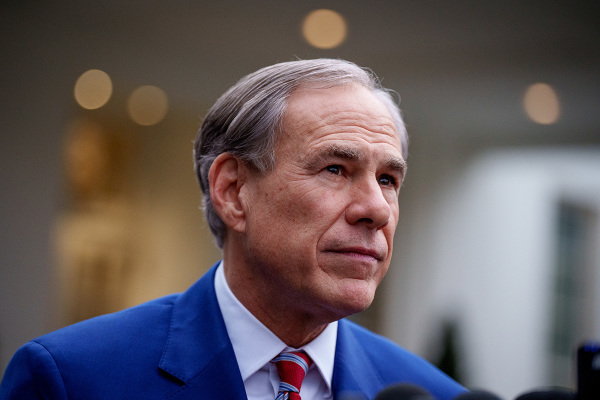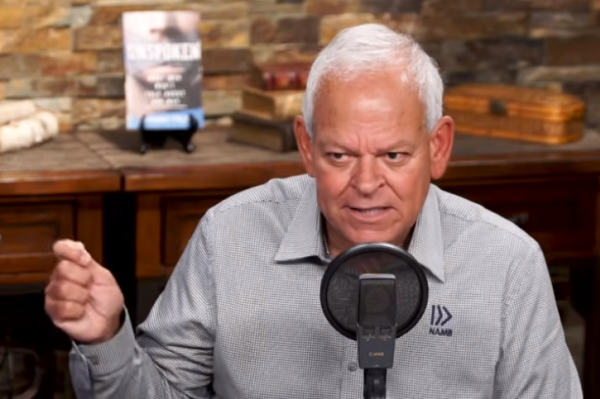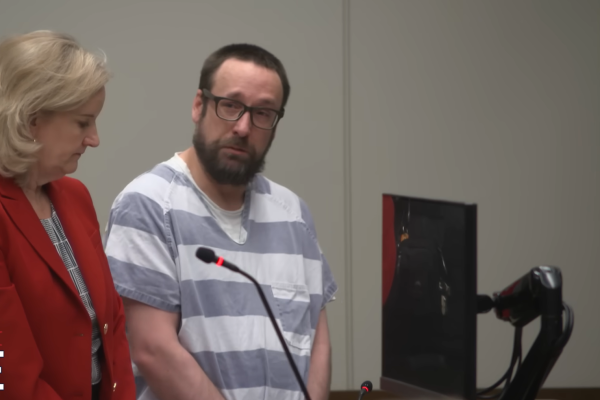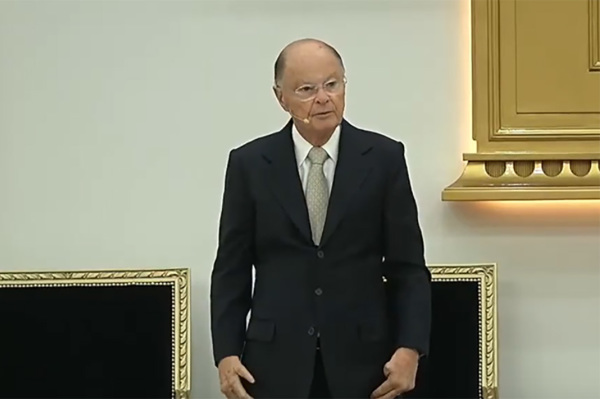Interview: Ex-Muslim on Faith, Women's Rights, Obama
Sabatina James, a former devout Muslim who converted to Christianity, lives life on the edge. She has moved 16 times since 2001 because of death threats on her life for leaving Islam. She is currently living in an unknown location in Europe under police protection.
James spoke to The Christian Post last week using a temporary cell phone that she had to discard afterward. The bestselling author of My Fight for Faith and Freedom and the founder of the relief organization, Sabatina EV, spoke candidly about her Christian faith, her passion for women's rights and how she thinks President Obama is handling relations with Islamic countries.
The following are excerpts from the interview.
CP: How old are you?
James: I'm 27 now.
CP: You talk a lot in your book about Islam's view of women and how Muslim men treat women based on the teachings of the Quran. So is it true what critics of Islam say – that the religion teaches that you can beat your wife, women have no value, and martyrs are promised to go to heaven where virgins await them?
James: Yes, well the Quran says in the fourth Surah (chapter) in verse 34 that if your wife is not obedient you are allowed to beat her. That is what the Quran says, you know. In Islamic countries, like Pakistan, Afghanistan, there is sharia law. And sharia law takes the Quran and that is how they judge. They take verses from the Quran and say it is written in the Quran that is why the women has to be obedient and if she is not you are allowed to beat her. That is the way it is.
Sabatina EV is my organization and there are a lot of Muslim women who come to us. We have girls who were married when they were 13 years old. In Hamburg, for example, there is one, a girl who is from Afghanistan who was married when she was 13 years old. But people do not talk about it because if you say something that is critical about Islam people would immediately say you are racist. And what they do not understand is that this is not about racism but about human rights. If you are living in a democracy you have to protect the human rights and it does not matter if your religion says you are allowed to beat your wife.
When I was a small child it was my wish to die for Allah one day – you asked about the suicide bombers. I didn't know what to expect in heaven but I was sure this is the only way to get to heaven because there is no guarantee for Muslims to know whether Allah will forgive him his sins or not. But if you die for Allah then you are guaranteed that you and your family will go to heaven; that is what you are taught in the Quran schools. And I was ten years old when I read the Quran and my grandfather, who just died, was a mullah and I learned the Quran from him in Arabic. For me it was normal.
When I was ten years old I went to Austria and I definitely didn't want to die then. But still I have that desire in my heart that one day Allah will give me the strength to do something like that; that I will kill some non-Muslims and go to heaven. Something quite normal.
CP: So even if a child doesn't go to a radical Quran school but just living in society a child has these suicide bomber thoughts?
James: Yes. You know the society is like that. I am from Pakistan and the police man who protects me – I'm under police protection – he said that Pakistan is now the most dangerous land in the world.
I was in Pakistan in 2008 and I cried a lot when I was there because it was like Armageddon. Like things can't get worse then they are there, especially for Christians and for the women. I interviewed a woman and she lost her son in the Pakistani army because in Pakistan if you murder somebody there is death penalty. And in the army where the Christian boy was, Muslim killed another Muslim but they say he did it. He is Christian and didn't do it but was in prison. They beat him, locked him up and he was raped by homosexuals and then hanged.
And his father when he found out his son was in prison and everything he had a heart attack and died. I interviewed the mom of the guy who died. It was really hard because he was also engaged to a girl and now she doesn't talk anymore. I couldn't do anything. That day when I met this woman, the way she was crying and I saw the fiancé of the guy who died, I was so ashamed of what I hear in the Western countries about dialogue is good and we are living peacefully with each other. This is just not true. There are millions of people who are tortured and people just do not want to talk about it because they are afraid of Islam.
CP: In your book, it is interesting that you say your family lived in a Western country but they still feel they can enact sharia law on you – the honor killing. Why is that? Why do they think they can live under their Muslim rules when that is illegal in the country they live in?
James: The thing is that when Muslims come to a Christian country they think that everybody around them is Christian. And when they see how Christians live – for example, nobody is going to church, they don't believe in God and make jokes about Jesus – for me as a Muslim that was disgusting. For us, people from the Muslim background, God is something very, very, very special. He is the most important authority in our lives. And if Christians do joke about it and say that we don't care about God, then Muslims feel they have to be even more protective of their children so they don't become like the Europeans.
So that is why they say it is better that our daughters do not become like German or European girls because it is normal that they are having sex before marriage; they do not want that. They do not make the difference between born-again Christians and people who go to church once a year at Christmas time.
And when they enter Europe or America, they do not just leave their thinking or religion at the airport. They bring it with them and they want to live with it. They are just coming here to the Western countries because of the money and better jobs. Otherwise they wouldn't be so serious about building mosques.
When I was in America, I listened to the speech of Mr. Barack Obama when he was in Egypt. I really hoped that he would say something about the persecuted Christians in Egypt. But he didn't say a word about it. He spoke about the holy prophet, about the Quran and it was so disgusting to me because I was like, "Okay, you are saying things about the prophet but why don't you protect – if you are a Christian and have such influence – why don't you say, 'Look, we want to have dialogue with Islamic countries and you are allowed to build mosques so we should also be allowed to build our churches in Egypt and Christians shouldn't be tortured in prison.'" But he didn't say a word about it. And that is what I hate about politics. They do not care about the real things that are going on and human rights.
CP: In your book you said that President Obama's Cairo speech was like a slap in the face to persecuted Christians. Do you think that a lot of Christians feel the same way as you?
James: Oh definitely because I am one of them. I am one of the converts. I am myself living under police protection. And I was in America because I fled from Germany for awhile because of security reason. I was living with a Pakistani Christian family. I definitely didn't have a home. I went from one apartment to another and I was like why is nobody talking about that. I have a lot of contacts with converts, people who have left Islam and converted to Christianity, and they all say, "You know, nobody speaks for us."
That is why I am so happy that this book of mine is such a huge success in Europe. People have to read it and people have to know what is going on in the Islamic world and why do brothers kill their sisters because of honor. Why they kill each other.
CP: So are you saying you think President Obama should have spoken differently to the Islamic world?
James: Definitely. A man of such influence should definitely speak differently. He should have said that he feels for the people sitting in prison and maybe somehow listening to the speech. Even if he said something like that it would be good. But he didn't even mention it.
CP: Under President Bush there was a lot of tension between the Muslim world and the United States. I understand that President Obama is trying to ease that tension and work together. But do you think that is going to help bring peace?
James: Oh no, definitely not. I definitely believe that dialogue can only be accomplished if the two parties agree with each other that we are willing to help each other and listen to each other. But the thing is the Western people are doing the dialogue but it is a monologue. They are just building the mosques and allowing the Muslims to do whatever they want in Europe. But what about the Christians? Muslim countries are not doing anything to help the Christian people there. So this is not dialogue and not helping anybody.
CP: How can Western Christians help women who are in similar situations as you were previously?
James: Yes. What Christians can do is these women they flee from home they don't have anything. They don't have a family, don't have any finances, they don't have anything. What they really need is people who say that you are welcome to our family.
They do not always want to go to a shelter home because they think that only bad women go to shelter home. So what they need is a family.
For example, I am now not living in my own apartment. I am living with some friends of mine in Germany because I move from one apartment to another since the death sentence from my father. Sixteen times I have moved my place since 2001, and now again I am living with friends. I do not have my own apartment and I was thinking and asking God where he wants me to go next.
Today, I was reading Paul. I think that I can somehow understand how he lives. It gave me so much hope because the apostles live like that so I'm not the only one. And Apostle Paul was persecuted a lot and I am not in prison and I have influence in Germany and people read my book.
What we need is Christians to speak out that they are there for them and let them know that if I go away from home there is hope for me and somebody may be my family.
You know it is very hard to be without your father, your mother and to leave everything behind you. I cried many, many nights and felt alone and just a few days ago I was like, "God, I don't think there is anybody who can understand what I'm going through because nobody in the Western community goes through something like that." That if they decide for Jesus their family persecutes them.
When I established my organization we got stressed from Muslims, but still I am going forward. I said God needs women who go forward and are brave and do His work. That is why I say, "Okay God, I will do it like Queen Esther, 'If I die, I die.' But I want to accomplish what you have said to me and I want to help Muslim women."
CP: You talked about the contrast you saw between Islam's treatment of women and Christianity, especially Jesus' treatment of women. Can you talk about that contrast and some of the others that made you want to be a follower of Jesus?
James: You know for me, I was really a follower of Islam because God was very important for me. But I tried my best to please Allah but I somehow felt that Allah didn't answer any of my questions even if I was doing my best to please him.
One day I had a classmate and I said to him, "I have so many troubles at home and I don't know what to do." He said to me, "You have to pray." I said to him, "I pray five times a day and you Christians only pray on Sundays." And he said, "Yeah, maybe you are praying to the wrong God."
At Christmas he gave me a Bible and I was sitting at my bed at night and my parents were sleeping. I prayed to Allah and said, "Who are you Allah? Are you Jesus? Are you Muhammad?" I was so confused because there are so many religions. I somehow felt that I should open up the Bible. When I was a child I heard that if you open the Bible or read the Bible you get cancer and I was afraid. But still I don't know what it is but a feeling saying open the Bible.
When I opened it I read a sentence and it was written there that "whoever searches for me with a pure heart will find me." And for me that was like an answer. I ask who are you and he gave me an answer.
After that I asked why didn't that happen with the Quran even though I read the Quran every day, and I'm opening up this Bible for the first time and it's just there. After some time I started to read New Testament and there was one figure in the Bible that touched my heart and that was Jesus.
For example, when the woman should be stoned but he was the one who protected her. I felt so good when I read that Jesus talked to the women, they didn't need to be killed when they came to him, or didn't beat them up or something. Prophet Muhammad was 50-year-old when he married a nine-year-old girl, Aisha. This is the example that my parents follow but Jesus didn't do anything like that.
CP: What is the best way for Christians to share the faith with Muslims? You said for you it was the Bible and a Christian friend?
James: I think every individual is different. You can't say that there is a recipe. But I think a great impact on Muslim is Christians who know what they believe in and they are courageous, brave and protect their rights. Because if Christians let Muslims do whatever they want and do not speak out for the persecuted church, for example, then they think that they are weak. They think Christianity is weak, we are strong. That is why they want to make every state into an Islamic state. Christians should be courageous and speak out and say, "Look, we love you, you are welcome in our country but we have rules in this country and if you do not follow these rules you have to go back."
CP: Is there anything else you want to add?
James: Our lives have a great impact on Muslims, how we live. For example, with my Christian classmate, he was the only one in that school who, in my opinion, knew the Bible. Everybody else was like they go to church for Christmas. I was like, "Okay, we are Muslims and we have to bring them religion because they don't have any."
We have a message of hope and we have to bring this message to the Muslim world. There are a lot of Muslims living in trouble, for example asylum homes. Jesus always helped people and then people say what is so special about the man. Do not only speak about mercy and grace, but do what you say.






















